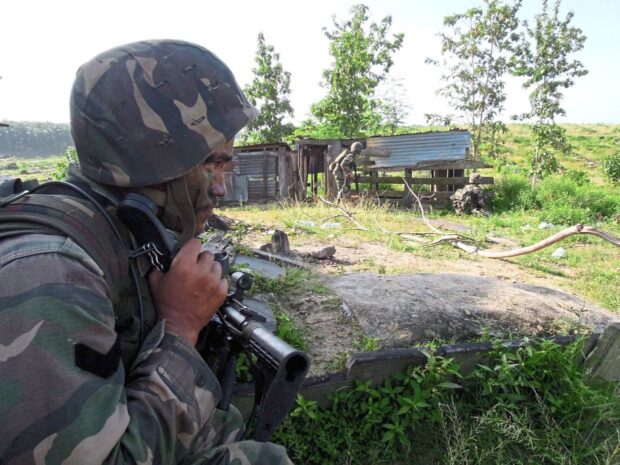No, the Sulu saga hasn’t ended

“Arguably, Sabah and Sulu are twins,” I said at The Sabah Society talk on “Sulu Claim: Proprietary, Sovereignty and Security” in my hometown, Kota Kinabalu, last week.
“We are separated by the Sulu Sea but linked by geography, people, history and geopolitics,” I argued.
The talk was timely as the Sulu issue was back on the minds of Malaysians, especially Sabahans, following the news that the Criminal Court of Madrid had sentenced rogue Spanish arbitrator Gonzalo Stampa to six months in jail for contempt of court.
Stampa was charged with “unqualified professional practice” after controversially ordering Malaysia to pay US$14.92 billion (RM70.3bil at current exchange rates) to the self-proclaimed heirs of the so-called Sulu Sultanate.
READ: French court rules Malaysia owes $14.92 billion to sultan of Sulu’s heirs
The Spanish court also banned Stampa from practicing as an arbitrator for a year.
Great job by former minister in the Prime Minister’s Department (Law and Parliament) Tan Sri Dr Wan Junaidi Tuanku Jaafar and current Minister Datuk Seri Azalina Othman Said in leading Malaysia’s legal battle against the Sulu claimants.
“It ain’t over,” I said, explaining to the audience that the latest court decision on the legal saga, which began when Stampa, in February 2022, ordered Putrajaya to pay about RM62.6 billion (at rates back then) to the descendants of a Sulu Sultan at an arbitration heard in Paris without any Malaysian officials present.
Many in my Sabah issues chat groups assume that we have won and the arbitration torn has been plucked out of Malaysia’s paw.
But, as former Sabah Law Society president Datuk Roger Chin said in a Jan 11 report in The Star, Malaysia should remain vigilant against attempts to enforce the award despite Stampa’s conviction.
“The focus should be on setting aside the award in the Paris courts, not [on] the arbitrator,” Chin said.
My colleague, Datuk Muguntan Vanar, who attended the talk and wrote the Chin article, added: “The Stampa conviction is big as it could bolster Malaysia’s chances in fighting the award.”
But, as I told the audience, cases in France, Luxembourg and the Netherlands are still ongoing. Under the quirky New York Convention on the Recognition and Enforcement of Foreign Arbitral Awards, we might win the case, but the Sulu claimants can attempt to enforce the award in any of the 172 countries that are signatories to the Convention.
The Sulu claimants are backed by Britain-based Therium Capital Management, which, according to news reports, has invested US$20 million in pursuing the claim through nine rounds of funding since 2017.
READ: How Malaysia ended up owing $15 billion to Sulu sultan’s heirs
The Sulu claimants’ lawyer, Paul Cohen, has said that his legal battle with Malaysia will continue despite Stampa being jailed.
The court cases were the proprietary part of my talk. There are other issues like sovereignty and security.
I explained that proprietary is about a fight over non-payment of alleged “rental” of Sabah. Putrajaya stopped paying after the Sulu Sultanate attacked Lahad Datu on the east coast of Sabah in February 2013.
Sovereignty is the claim that the “house”, ie Sabah, belongs to the Sulu Sultanate – which technically is the Philippines government now as a Sulu Sultan gave up the right to the claim to Manila at one point in history.
The security issue is about the possibility of a repeat intrusion by the “Royal Sulu Forces”; during the 2013 attack, six civilians, 10 Malaysian security forces personnel and 56 intruders were killed.
Many treat the three issues – proprietary, sovereignty and security – as one issue. They are connected but they have to be seen and handled separately. Some of the Sulu players are involved in one or two or all three parts of the problem, but some are only part of one of the issues.
For example, an uncle in the Sulu family is involved in the propriety case but not in the sovereignty and security issues. His nephew, on the other hand, is not included in the Stampa (propriety) case but wants Malaysia to recognise him as the Sulu Sultan, which would be part of the sovereignty issue.
“Guess which of the three issues keeps me awake at night?” I said.
As I told the audience, we must understand the psyche of those living in Sulu and that of the Sulu Sultanate family: “They are Filipinos. However, arguably, some of them are also ‘Sabahans’ or have a close link with Sabah.”
I also gave the audience an understanding of the psyche of Sabah’s twin: When the Sulu family heard the Stampa judgement in 2021, it “confirmed” for them that Sabah belonged to them – after all, the Paris court had awarded that US$14.92 billion to them. They also think Stampa’s declaration that it was a “final award” meant just that, it was settled, even though the arbitrator had no legal right to say that.
Even if the Paris appeals court overrules Spain’s Stampa judgement, the Sulu family members won’t be reading 1,000 pages of judgement and saying now we understand why Sabah doesn’t belong to us. Instead, they will probably say Malaysia stole Sabah again from us.
“What do you think they will do if eventually they don’t get paid the US$14.9 billion?” I asked the audience.
I then shared a photograph of smoke billowing from a bombed-out section of Zamboanga City during the 2013 siege of the southern Philippines city by the Moro National Liberation Front. It is a hint of what keeps me, a Sabahan, awake at night.
“Who is the evil twin?” I asked at the end of the talk.



















